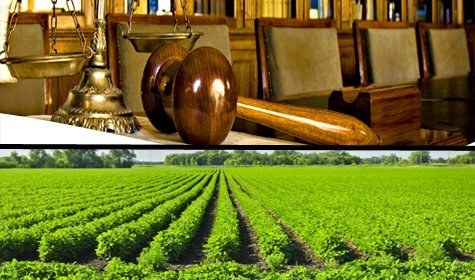People frequently ask my advice on how to select an agricultural law attorney. Having been in private practice for four years, I understand the importance of finding the right attorney for your legal issue.
Importantly, there is no one-size-fits-all plan to selecting the right attorney for you, and, as you might expect, the right attorney for one farmer’s issue may not be the right attorney for the farmer down the road. Here are a few important points to consider when you are selecting an attorney.
1. Can you have an intelligent conversation with the attorney? I’m just going to put this out there…..some attorneys are jerks, some are wholly lacking people skills, some are just flat tough to communicate with (think Sheldon from the Big Bang Theory). In order for you to obtain the best representation, it is essential that you are able to easily communicate with your attorney. You need to be able to understand your attorney, and your attorney needs to listen carefully and understand you. There will need to be an open dialogue between you and your attorney and the conversation will likely, at some point, include difficult or uncomfortable issues. Ensuring that you are able to communicate well with your attorney is a key first step in evaluating who to hire.
2. Does he or she promptly return emails and phone calls? The biggest complaint against attorneys with state bar associations is failure to keep a client informed of the status of the case with the prompt return of emails or phone calls. Now, it is important to be realistic in this expectation, as your attorney has other cases and clients to tend to as well. A good rule of thumb is that an attorney should respond to you in some way within 24-48 hours of you contacting them. This may be a returned phone call or email discussing the issues you wish to raise, or it may just be a short email letting you know that he or she is in court, but setting a time to talk in the future. This is something that can be determined by vising with other clients of the attorney, and by making a phone call or two to the attorney early on in the process to see how he or she responds.
3. Does he or she have experience in with the specific legal issue you are dealing with? One misconception a lot of people have about attorneys is that in law school, we learned the law, all of it. Sometimes, people expect an attorney to be able to answer any question from agricultural leases, to DWIs, to divorce, to patent law. The truth is, it is nearly impossible for an attorney to be proficient in every area of the law! It is important that you find an attorney who is capable of handling your specific legal issue. For example, it may well be that a general practitioner can easily help you prepare an estate plan, draft a will, and litigate a breach of contract dispute. If, however, you end up in a complex water law case before the United States Supreme Court, you may need to bring in another attorney to assist you. During the initial consultation, be sure you ask the attorney about his or her experience with your specific legal issue.
4. Does the attorney know the difference between these two animals? (One is black and one is white is not what we’re looking for here!)
5. Is the fee structure clear to you? Everyone knows that attorneys are expensive, there is no real way to sugar coat that. It is important for you to understand the fee structure that a prospective attorney will be using. Oftentimes, attorneys bill a set fee per hour worked. Other times, attorneys may quote a flat rate to handle one project (i.e. a will). Still other times, an attorney might take a case on a contingency basis, meaning you do not pay up front, but will share some portion of the eventual recovery with the attorney. Make sure you understand the approach that will be taken for your case, and ask questions like who pays for fees such as copying or legal research database charges, how often billing statements will be coming in the mail, and exactly how a contingency fee will be calculated.
In the end, the best thing advice I can offer is to do your homework (talk to folks who may know the attorney you are considering like other lawyers, former clients, bailiffs) and trust your gut. First impressions are often accurate impressions!
Tiffany Dowell grew up on her family farm and ranch in Northeastern New Mexico and is currently an Assistant Professor and Extension Specialist in Ag law with Texas A&M Agrilife Extension. This information is for educational purposes only, does not create an attorney-client relationship, and is not a substitute for the advice of a licensed attorney.

